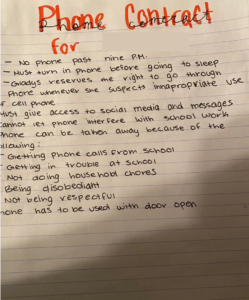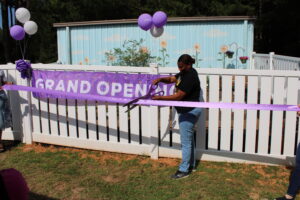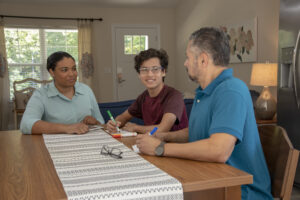
Importance of Relationships in Therapeutic Foster Care
Over 20 years ago, Gladys welcomed her first foster children into her home. With four biological daughters of her own, adding three more young girls to the family made for a very full house with love and laughter. Since that first placement, Gladys and her family have cared for over 80 foster children, forming unique relationships with each one. After working with the Department of Social Services and Youth Focus, Gladys is continuing her work as a therapeutic foster parent with Alexander Youth Network.
The Therapeutic Foster Care program through Alexander Youth Network is designed for children and adolescents who would benefit from a therapeutic in-home environment for the treatment of their mental health problems, trauma-based behaviors, or severe emotional disturbances. This program offers children a structured home environment with a focus on building therapeutic skills and is often used to aid children who will transition to a less intensive program before returning to a permanent home setting.
Getting to Know Each Foster Child
Over the past two decades, Gladys has cared for many kids, from toddlers to teenagers. Regardless of age, race, gender, or sexuality, she offers them a safe and loving home where they can be themselves. “The most important thing to remember,” in Gladys’s opinion, “is that every child is different, and they each need to be cared for and treated differently.” She believes that the key to success as a foster parent is to meet each child where they are. Just because two foster kids are the same age or have similar interests, does not mean they have the same needs and abilities.
One of the most effective ways Gladys builds relationships with her foster children is over dinner. Each week, all the kids get a say in what they will be having for dinner, and they always eat together as a family. Dinnertime is the perfect setting to get to know your foster child. Kids tend to open up and talk about their day, their friends, and other things going on in their lives when they are gathered around the table, family-style. It is a great opportunity to simply listen and encourage them to share more.
Ultimately, foster children need to feel safe. They need someone to talk to who will listen without bias and give honest feedback. Many kids in therapeutic foster care have experienced some form of trauma in their lives. Offering a listening ear and an open line of communication is oftentimes exactly what they need.
Connecting with LGBTQ+ Youth
In her many years as a therapeutic foster parent, Gladys has cared for several LGBTQ+ teens. She recalls the moment when one of her foster children came out to her and how the teen was surprised by Gladys’s positive reaction. She said, “you don’t care?” and Gladys said, “of course not. If you keep your grades up in school and follow the rules, we can even invite your girlfriend over for dinner sometime.” This simple act of affirmation meant the world to the LGBTQ+ teen.
Gladys tries her best to offer support to these kids. She has found social groups for LGBTQ+ foster kids in the past so they could meet other teens in the area who could relate to them. During her brief time spent with a teenager who was transitioning to female, Gladys took her out to get her hair and nails done. She focused on encouraging the teen to express herself and learn to be comfortable sharing who she is with the world.
Alexander Youth Network is partnering with Blue Cross and Blue Shield of North Carolina (Blue Cross NC) to train more foster parents and create more safe and healthy homes for LGBTQ+ youth in the foster care system. Unfortunately, these young teens often face additional hardships in the foster care system. With more loving and understanding foster parents like Gladys, these kids can find safety and acceptance.
Setting House Rules
As you can imagine, with a house constantly full of kids Gladys has set a few ground rules they need to follow. With each new foster child, Gladys discusses the house rules and negotiates appropriate consequences. While her standards always stay the same, she gives each kid a say about what they see as fair. Not only are they more likely to follow the rules after having them reviewed and explained to them, but they are also more accepting of the consequences because they have previously negotiated and agreed to them.
Gladys has a contract for each foster child that they both sign together reviewing the rules and expectations of the house. Included in the contract is an agreement to turn in their phones at night before bed. Gladys knows that too much time and freedom on their phone will make it harder for her to connect with the kids and, inevitably, harder to care for them. Of course, teens will be teens but for the most part, the foster kids understand her reasoning behind the rules and accept them without much arguing.

Creating Bonds to Last a Lifetime
For Gladys, the most rewarding part of being a therapeutic foster parent is being there for her foster kids when they need her, whether that be while they are under her roof or years later. It brings her so much joy when her kids call in to check on her or ask for advice, often still calling her “mom”. Every foster child that walks through her doors is family, and they always will be.







